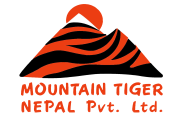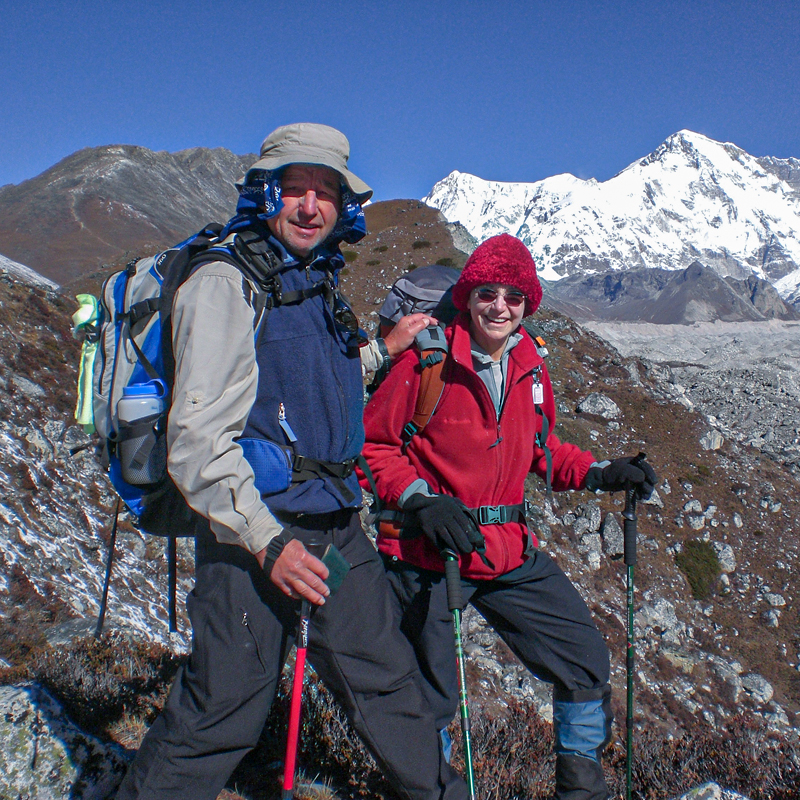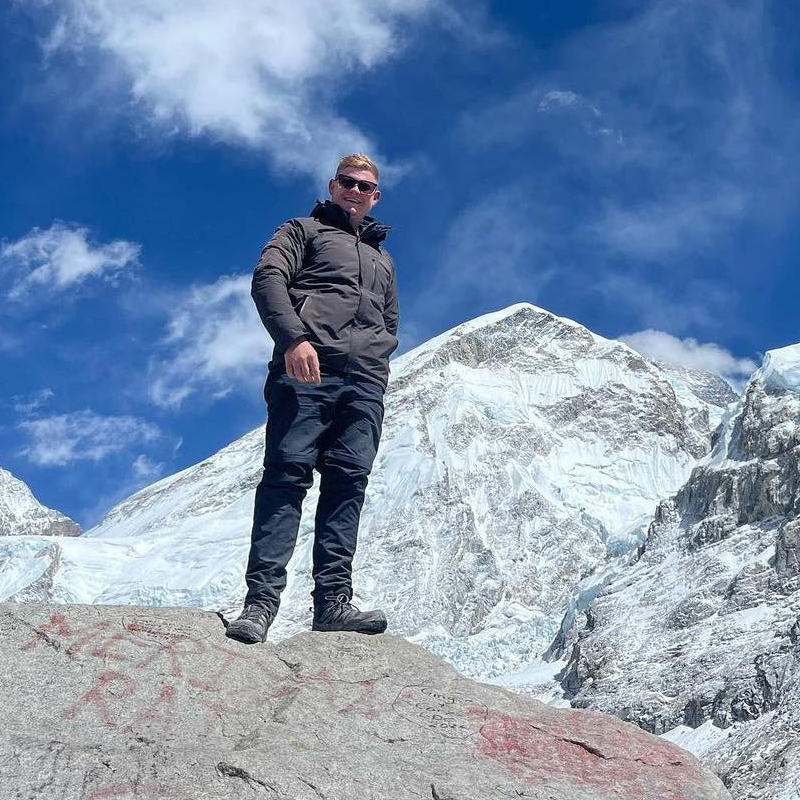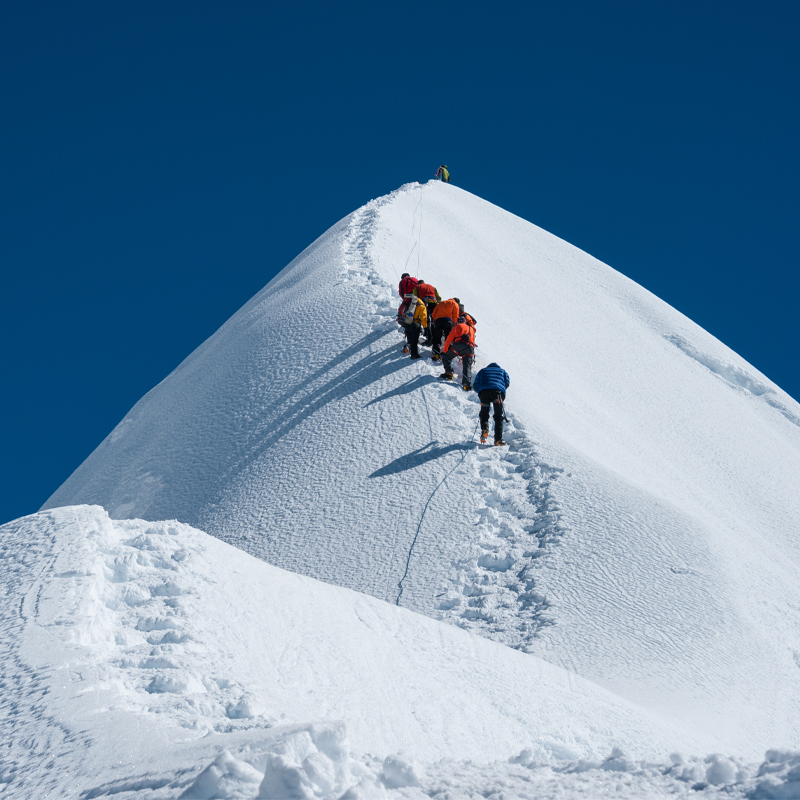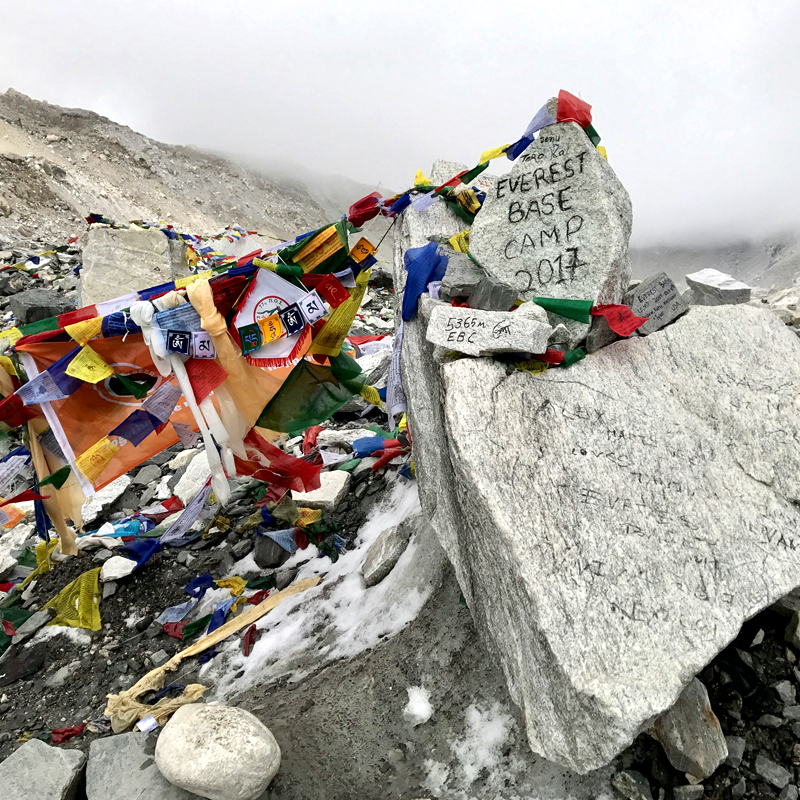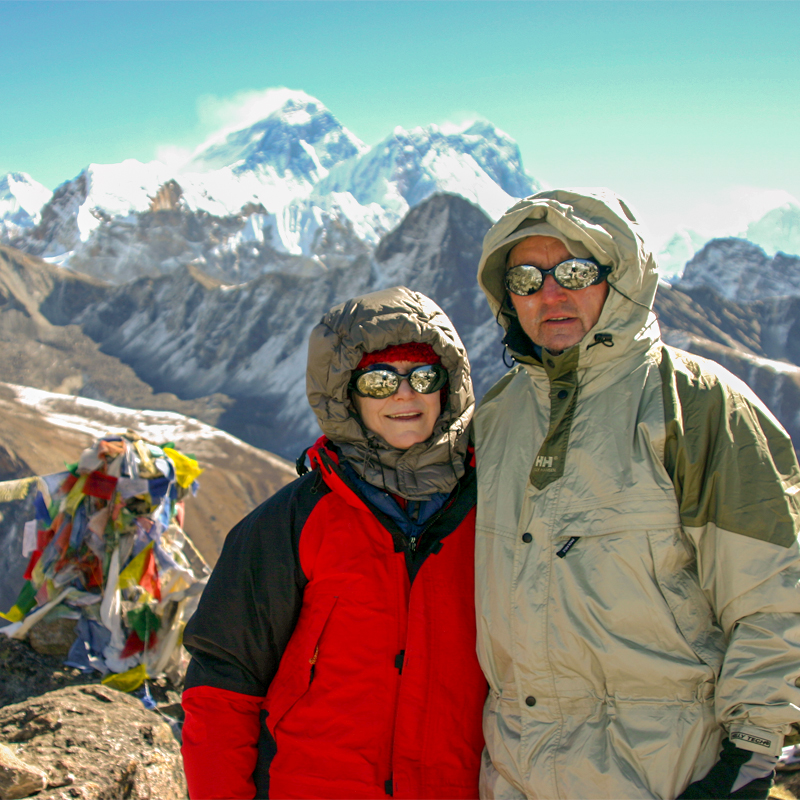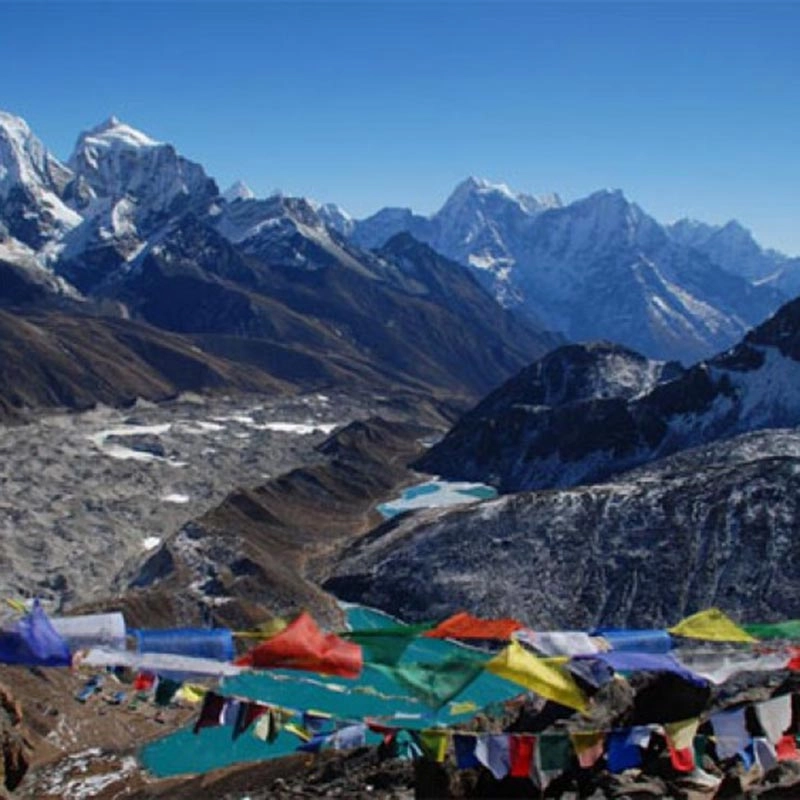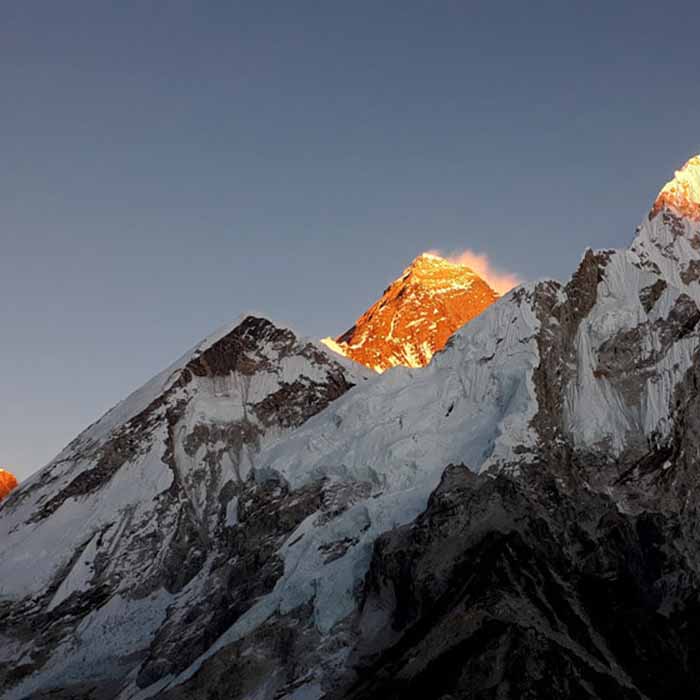-
Follow in the footsteps of Sir Edmund Hillary and Tenzing Norgay, retracing their historic journey to the summit of Mount Everest.
-
Venture through the lesser-known paths of the Solukhumbu district, discover hidden gems and untouched landscapes.
-
Picturesque nature and abodes en route
-
Visit Gokyo Lake and climb Gokyo Ri 5,357 meters (17,575ft)
-
Ngozumpa glacier, longest glacier of the Himalayas. Get a glimpse of the Khumbu glacier and Khumbu icefall.
-
Cross the Cho La Pass at an elevation of 5,420 meters ( 17,782ft)
-
Capture the sunrise from Kala Patthar 5,545 meters (18,192ft) as the sun bursts upon numerous colossal peaks such as Everest, Lhotse, Makalu, Cho Oyu, Nuptse, Pumori, Ama Dablam, and Thamserku.
-
Immerse yourself in the evergreen culture, tradition, and history of the Sherpa community.
- Home
- Tours
-
Nepal
- Trekking
- Classic Everest Base Camp Trek - 21 days
- Everest Base Camp Trek -14 Days
- Everest Base Camp with Island Peak - 19 Days
- Everest Three Passes Trek - 19 Days
- Everest Panorama Trek - 9 days
- Gokyo Lake Trek - 13 Days
- Gokyo and Kala Patthar Trekking - 17 Days
- Annapurna Base Camp Trek - 12 Days
- Annapurna Circuit Trek - 16 Days
- Nar Phu Valley Trek - 19 Days
- Khayer Lake Trek - 11 Days
- Upper Mustang Trek - 16 Days
- Sherpa Village Trek - 10 Days
- Short Annapurna Base Camp Trek - 8 Days
- Langtang Valley Trek - 10 Days
- Ghorepani Poon Hill Trek - 9 Days
- Helambu Village Trek - 9 Days
- Mardi Himal Trek - 9 Days
- Manaslu Circuit Trek - 14 Days
- Tilicho Lake Trek with Annapurna Circuit- 19 Days
- Manaslu and Annapurna Circuit Trek - 23 Days
- Dhaulagiri Circuit Trek - 18 Days
- Makalu Base Camp Trek - 18 Days
- Langtang-Helambu Trek - 17 Days
- Tsum Valley Trek - 16 Days
- Upper Dolpo Trek - 24 Days
- Tamang Heritage Trail - 14 Days
- Rara Lake Trek - 14 Days
- Lower Manaslu Trek - 8 Days
- Tours & Sightseeing
- Experience Kathmandu City - 3 Days
- East Nepal Tour - 8 Days
- Kathmandu and Pokhara Tour - 6 Days
- Explore Nepal in Luxury - 24 Days
- Golden Triangle Tour - 8 Days
- Janakpur Dham - 5 Days
- Kathmandu Chitwan Tour - 6 Days
- Kathmandu Valley Cultural Heritage Tour - 5 Days
- Kathmandu Valley Sightseeing - 5 Days
- Kathmandu and Lumbini Tour - 7 Days
- Nepal Adventure Tour - 8 Days
- Nepal UNESCO World Heritage Site Tour - 14 Days
- Nepal Wildlife Tour - 15 Days
- Limi Valley Trek - 17 Days
- Luxury Treks
- Extreme Sports
- Trekking
-
Tibet
-
Bhutan
- Filming
- Company
- Blogs
